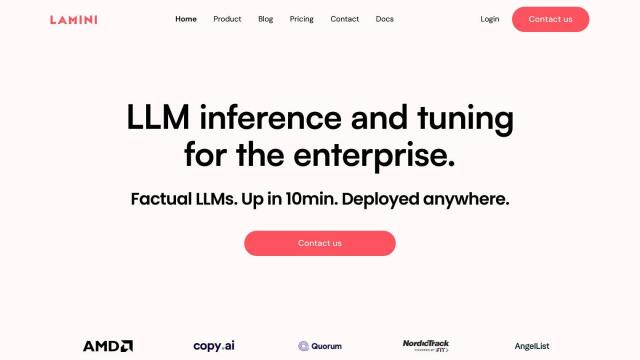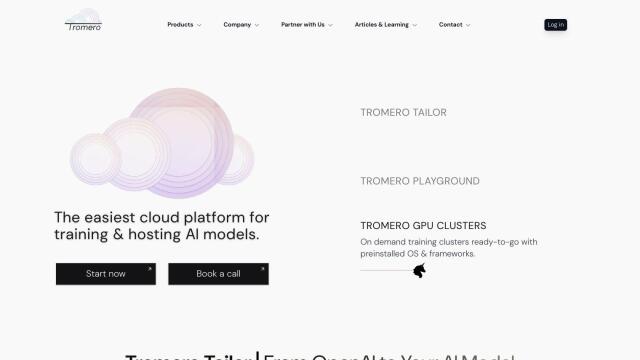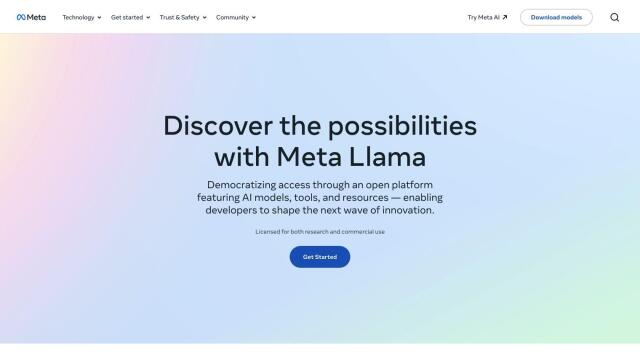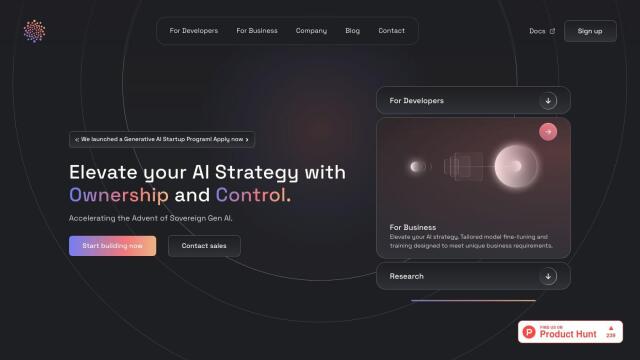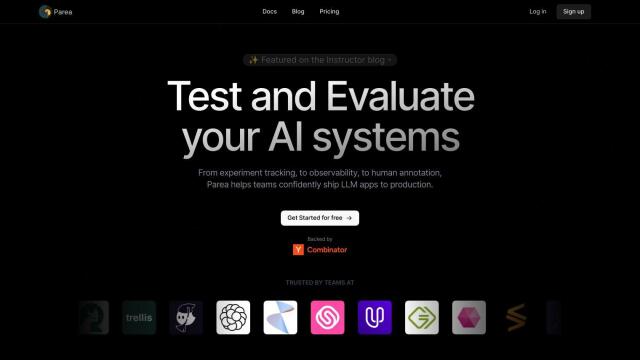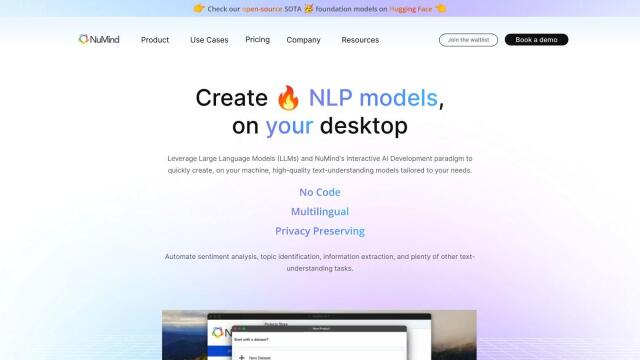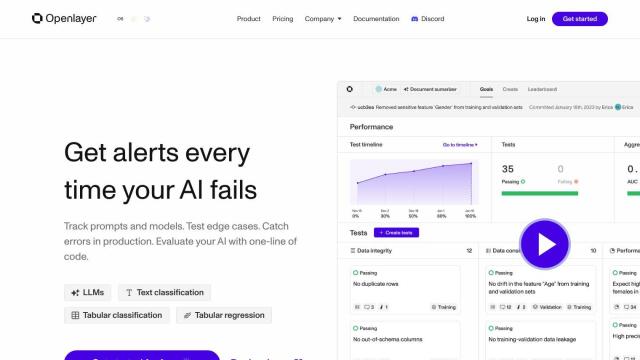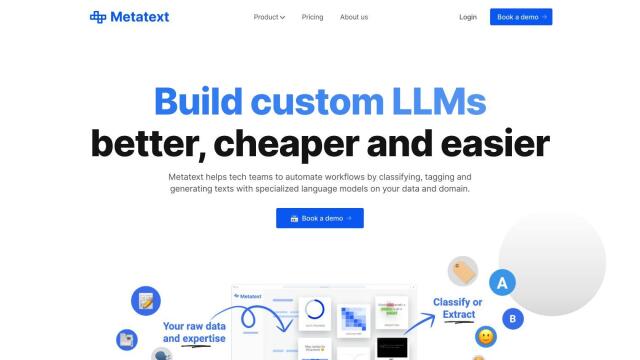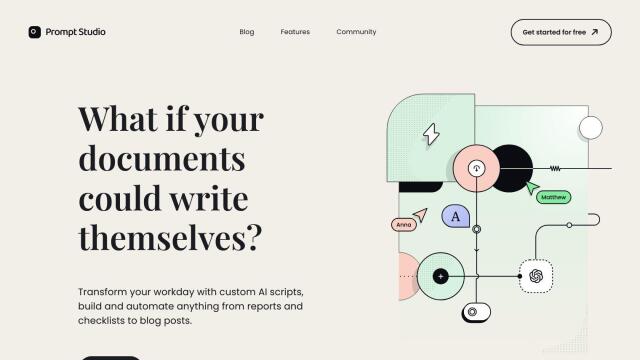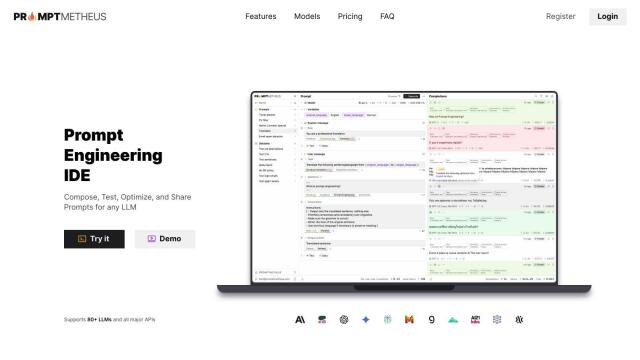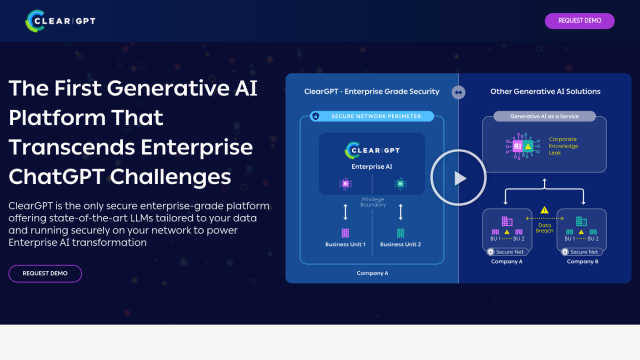Question: How can I efficiently fine-tune language models for tasks like classification, sentiment analysis, and code generation?


Predibase
If you want to fine-tune language models for tasks like classification, sentiment analysis and code generation, Predibase is a good option. The platform lets you fine-tune open-source LLMs with techniques like quantization and low-rank adaptation. It supports a variety of models and uses a pay-as-you-go pricing model, so it's relatively inexpensive. Predibase also has a strong security focus, with SOC-2 compliance and enterprise-grade infrastructure.

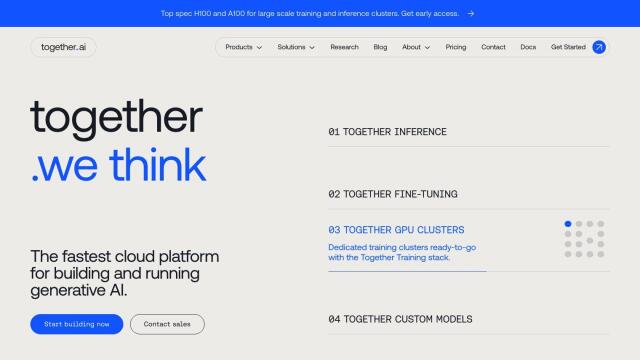
Together
Together is another good option for rapid development and deployment of generative AI models. It comes with optimizations like Cocktail SGD and FlashAttention 2 that can speed up model training and inference. Together supports a variety of models, including LLaMA-3, Arctic-Instruct and Stable Diffusion XL. It offers scalable inference and collaborative tools for fine-tuning, testing and deployment.

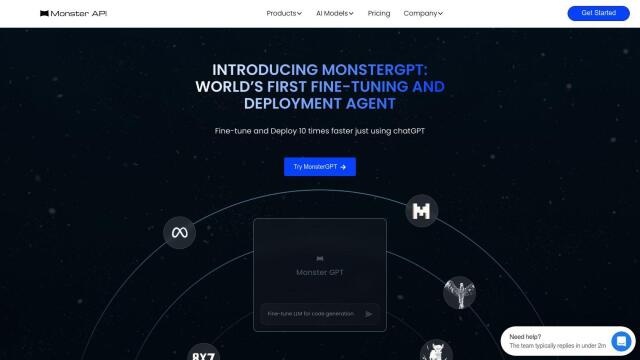
MonsterGPT
If you want an easy interface, MonsterGPT is a good option. MonsterGPT lets you fine-tune LLMs with a few text prompts and deploy them without much technical setup. It supports tasks like code generation, sentiment analysis and classification, and has job management and error handling features. The platform uses MonsterAPI, which offers pre-hosted generative AI APIs and deploys both open-source and fine-tuned LLMs.


Humanloop
Another contender is Humanloop, which is designed to manage and optimize the development of LLM applications. It's designed to overcome common problems like suboptimal workflows and poor collaboration. Humanloop offers a collaborative prompt management system, evaluation and monitoring tools, and customization and optimization features. It supports common LLM providers and offers SDKs for integration, so it's good for product teams and developers.

